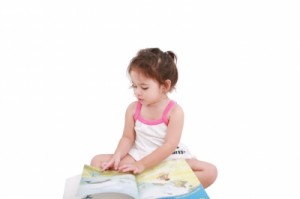This post is part of a series on what to expect in Nursery and Reception (the Early Years Foundation Stage). So far we have given a brief overview of Nursery and Reception; the Early Learning Goals (Prime Areas and Specific Areas).
How will my child be assessed?
Assessment in the Early Years is low key and done mainly by observation. Your child’s teacher (and teaching assistants) will watch your child play, interact with others and carry out particular tasks. Later in the Early Years Foundation Stage, your child’s reading and numeracy will be observed and logged. Throughout Nursery and Reception examples of your child’s progress will be collected. These may include drawings and other art work, photographs of your child performing a task (e.g. bouncing a ball) and written work.
The Early Years Foundation Stage Profile
In the final term of Reception, your child’s teacher will complete an Early Years Foundation Stage Profile for your child. The Profile provides a well-rounded picture of your child’s progress and measures how ready s/he is for Year 1. Your child’s level of development will be assessed against the Early Learning Goals (the three prime areas and four specific areas).
Your child’s teacher will indicate whether s/he is meeting expected levels of development, or if they are exceeding expected levels, or not yet reaching expected levels (‘emerging’). The profile describes each child’s attainment against the 17 Early Learning Goals together with a short narrative about their learning characteristics.
If you are worried about your child’s progress
If your child is not yet meeting the expected levels in more than a couple of areas, you might worry that they are struggling, but it’s very important to remember that all children develop at different speeds. This is particularly the case in the early years of learning. Some children who are very far ahead by the end of Reception, may settle to a more average level by the end of Year 1. This is not cause for concern as young children sometimes progress in fits and starts. Make sure your child has all the support s/he needs at home and school, and do ask the school for extra help if you feel it is needed. If you are still concerned, please don’t hesitate to book a free, no obligation assessment with Paul or Christine at Better Tuition. We are educational experts and can hopefully reassure you.
Resources and information to help
Better Tuition has some downloadable resources and tips to help your child develop secure numeracy and literacy skills. You can find them on this link.
This document is an edited version of the Department for Education’s Statutory Framework for the Early Years Foundation Stage. All information is correct at the time of publication. The full framework may be accessed at http://tinyurl.com/87xmlhv.


